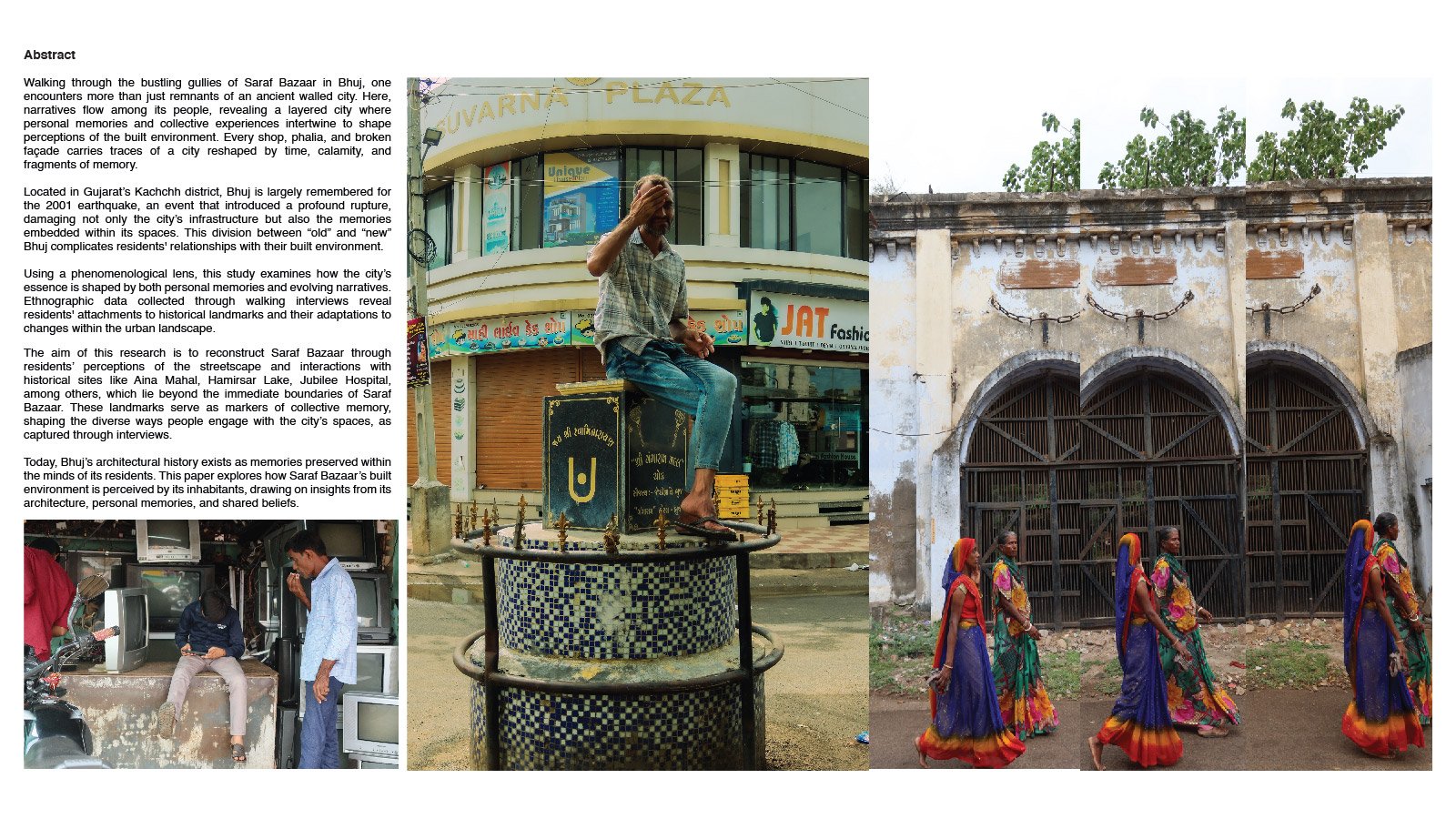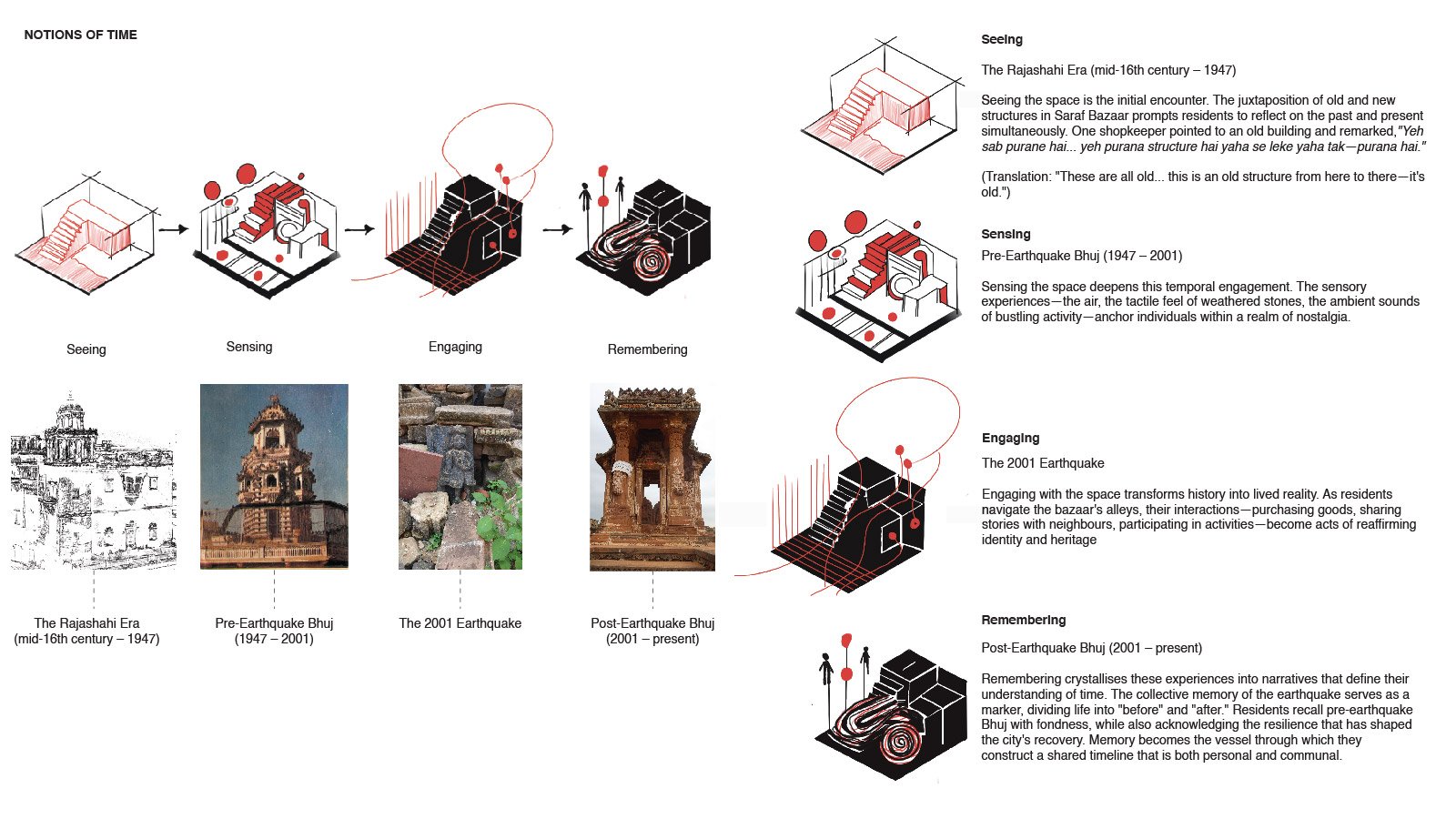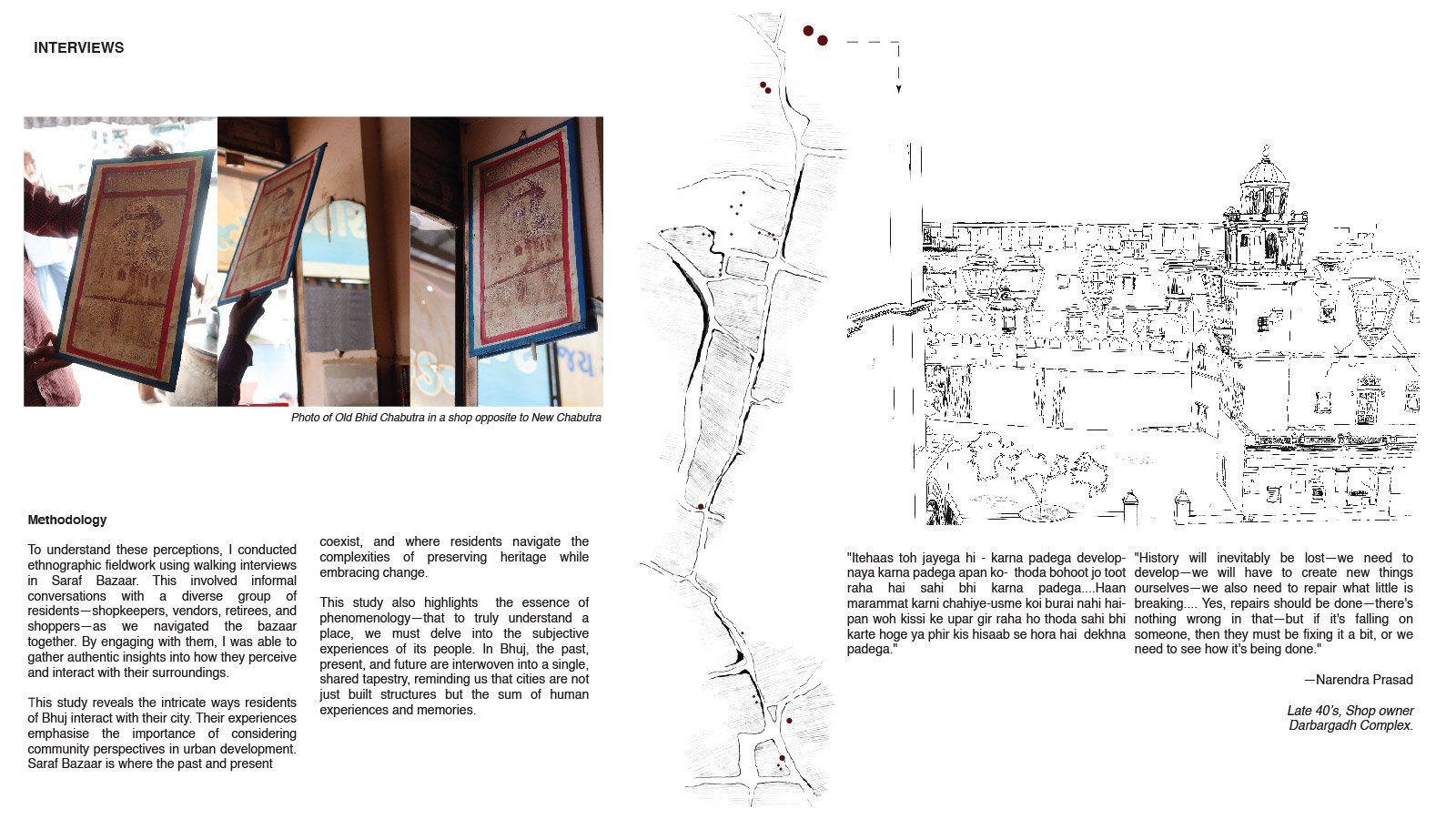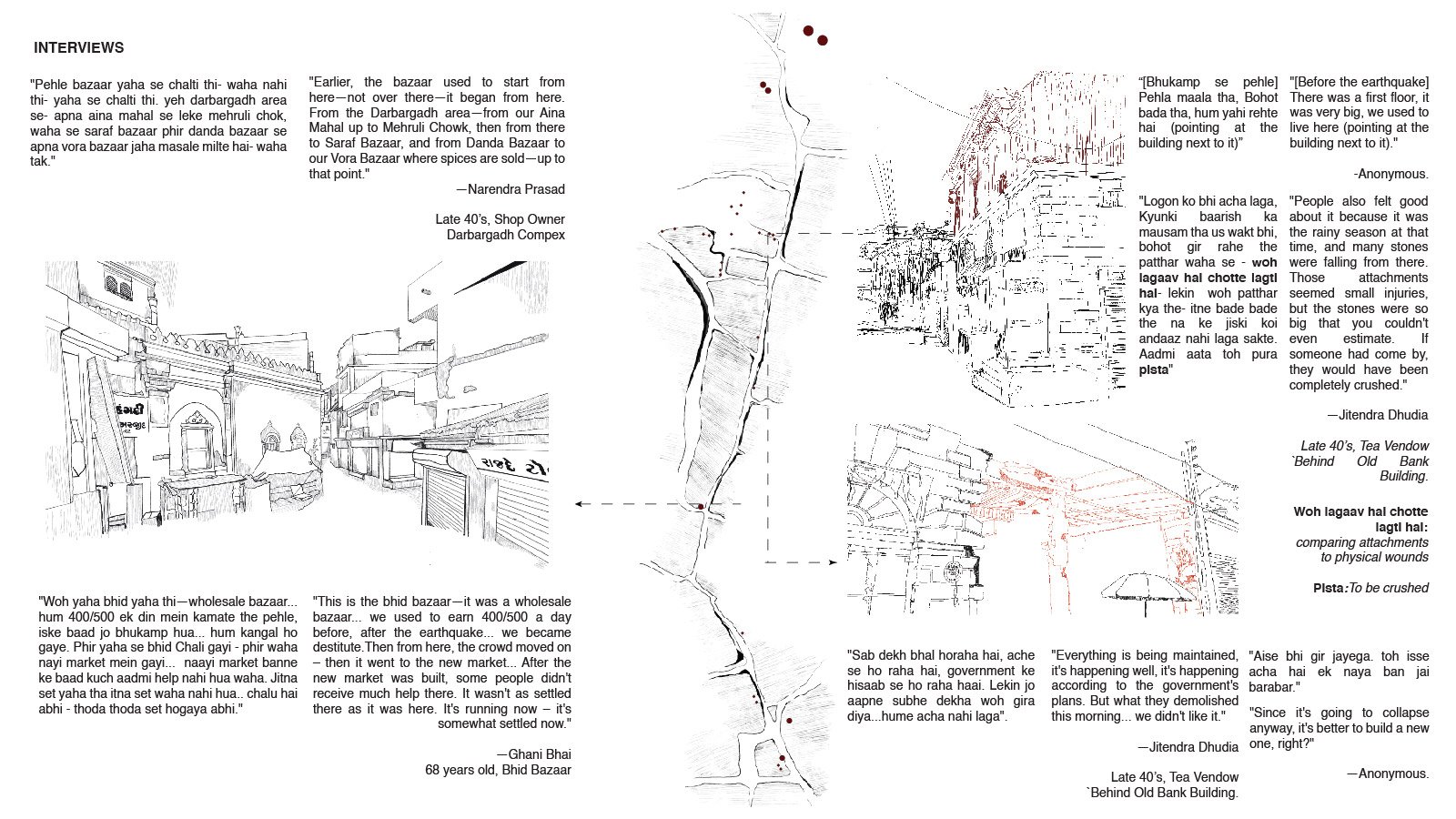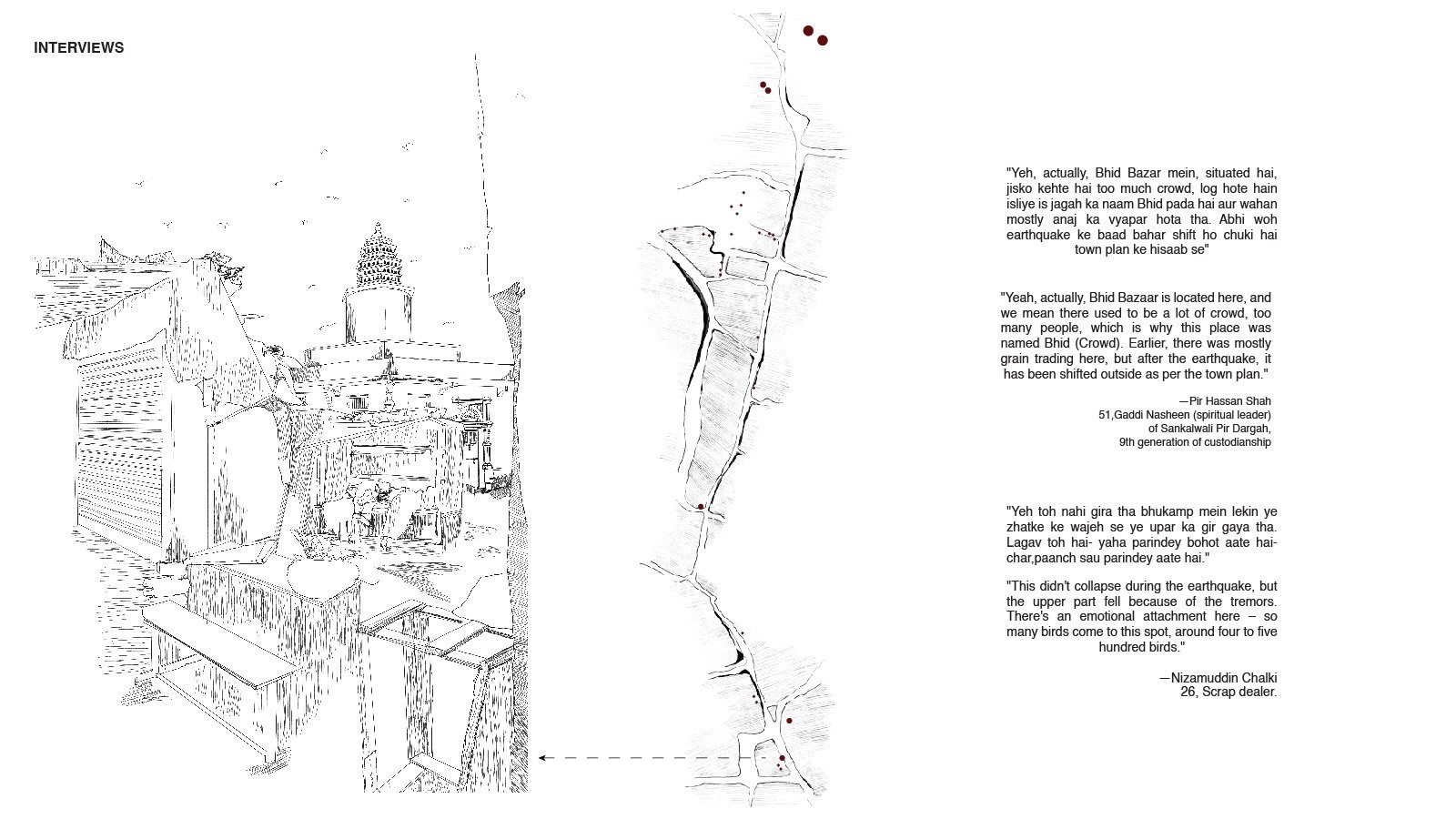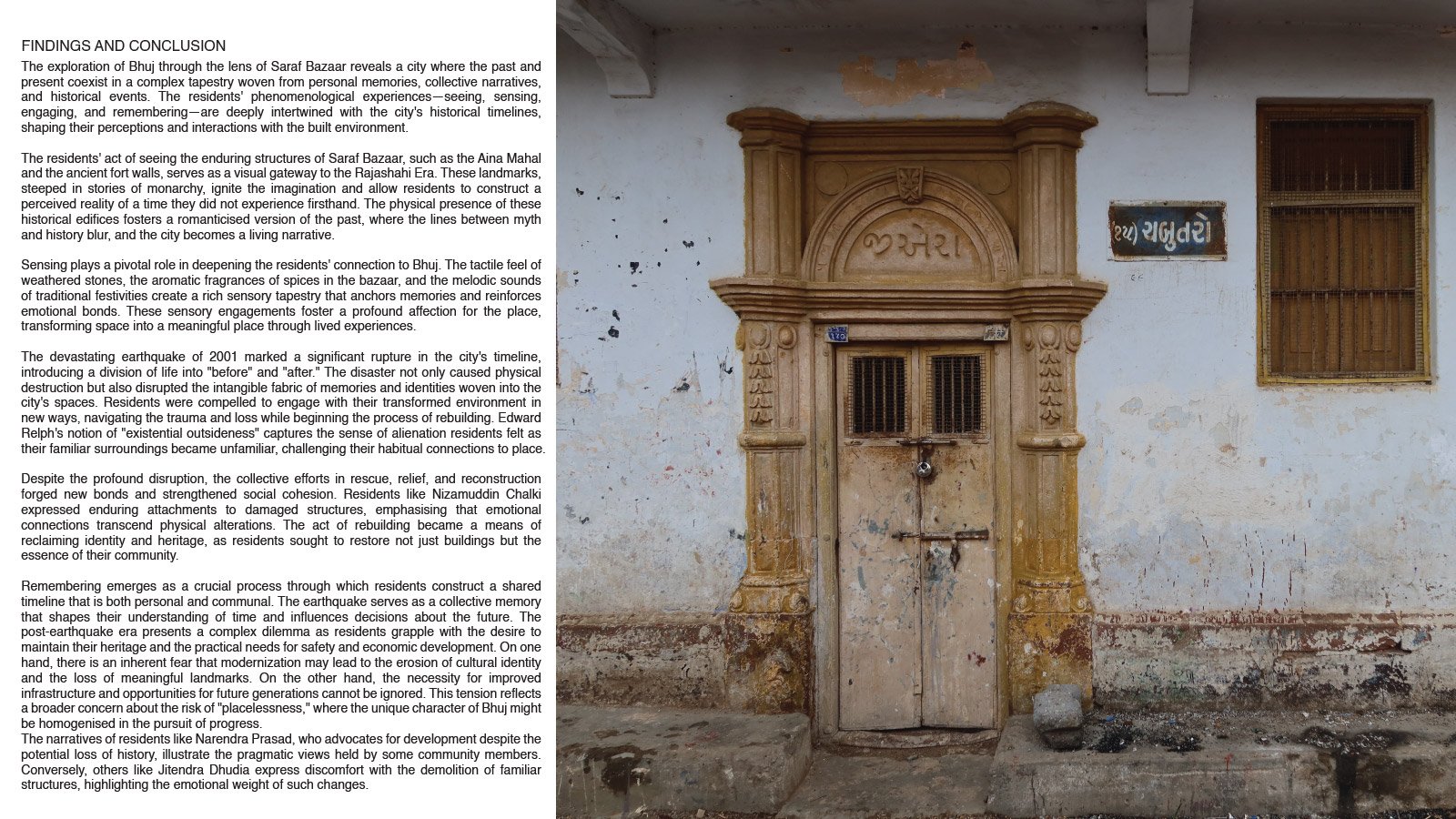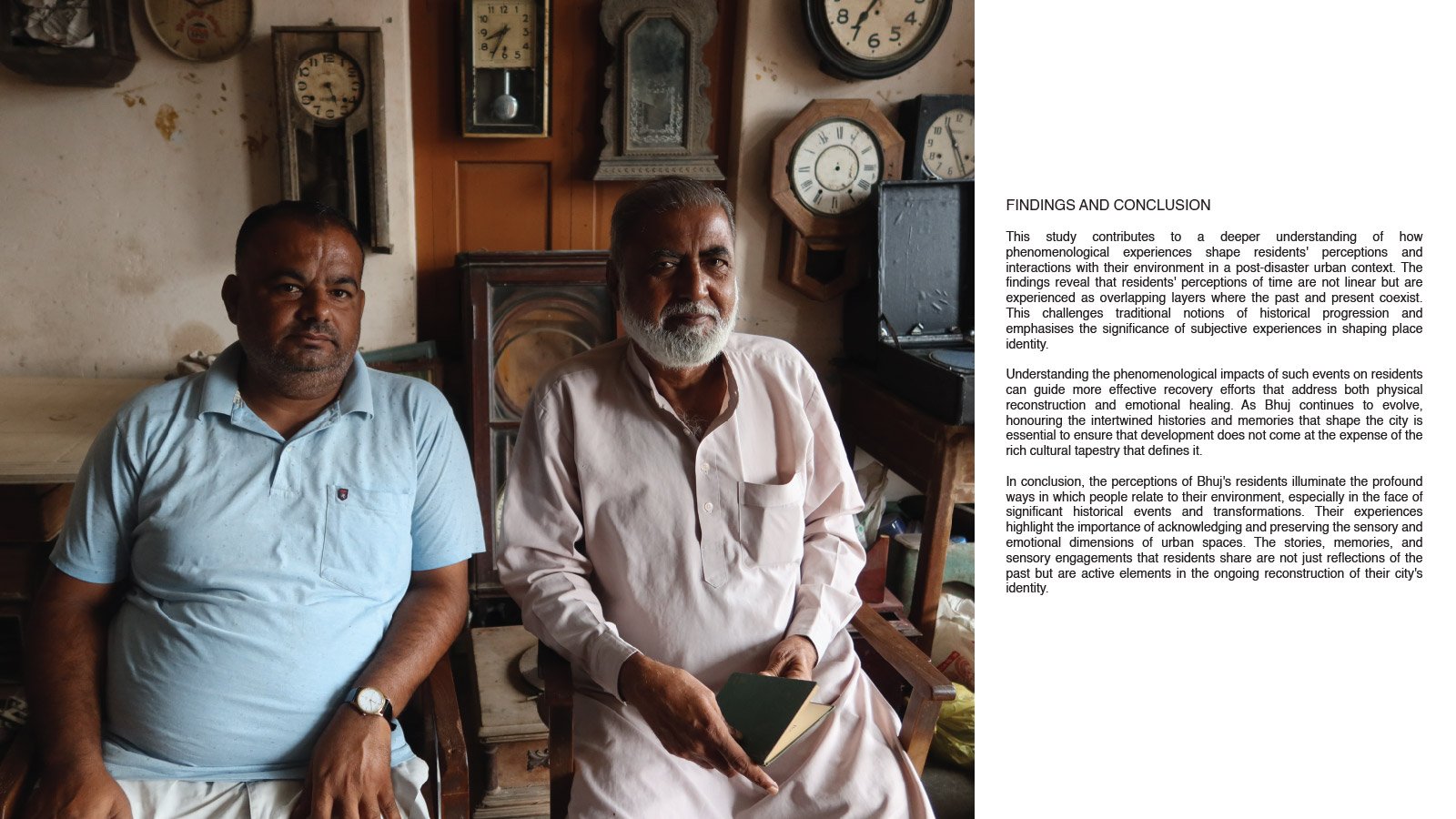Your browser is out-of-date!
For a richer surfing experience on our website, please update your browser. Update my browser now!
For a richer surfing experience on our website, please update your browser. Update my browser now!
This paper examines how the residents of Bhuj reconstruct their perceptions of Saraf Bazaar through phenomenological experiences—seeing, sensing, engaging, and remembering—that are intrinsically linked to the city's historical timelines narrated by its residents. By correlating these phenomenological senses with distinct historical periods (the Rajashahi Era, Pre-Earthquake Bhuj, the 2001 Earthquake, and Post-Earthquake Bhuj), the study reveals how personal and collective memories shape residents' interactions with the built environment, influence their notions of time and history, and highlight the tensions pertaining to preservation in a post-disaster urban context.
View Additional Work